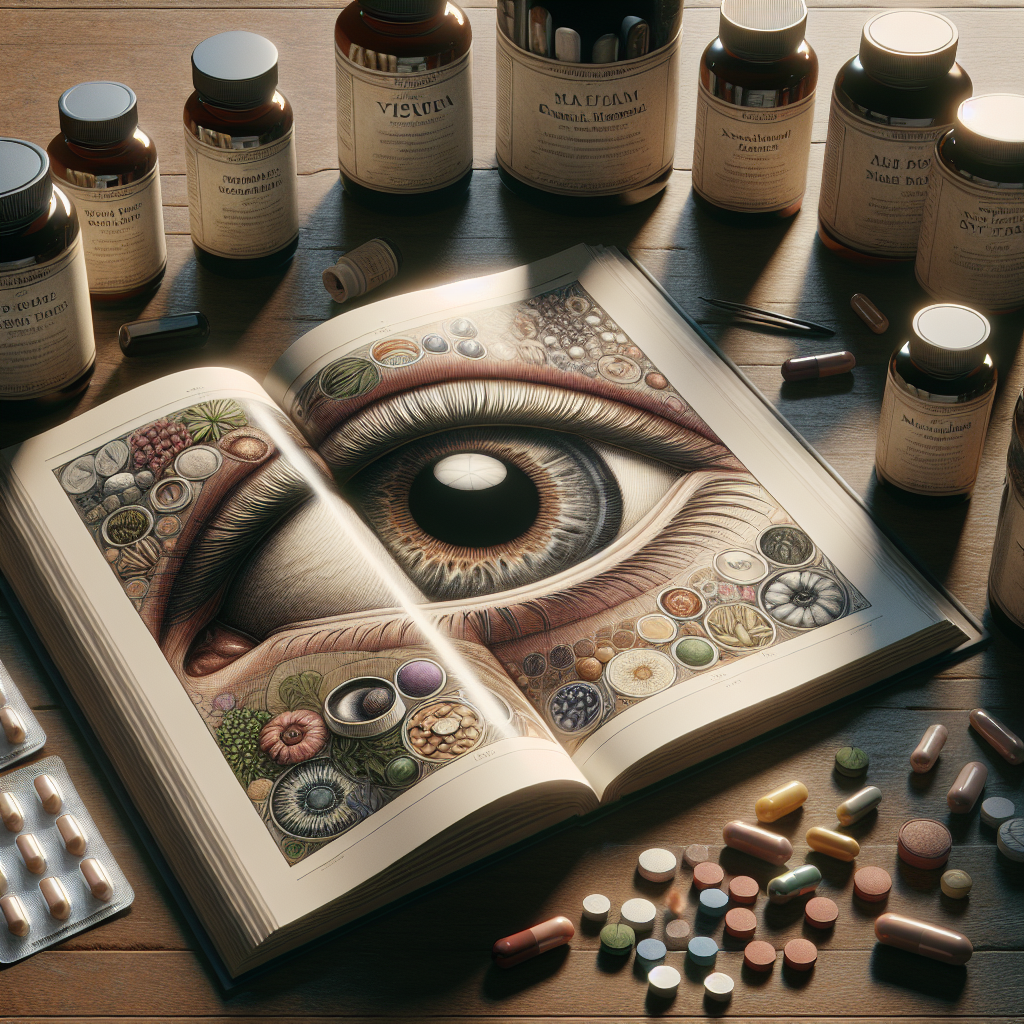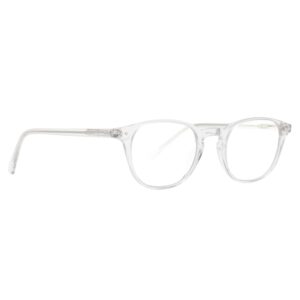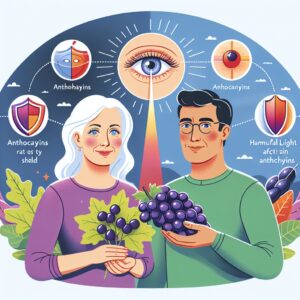
Key Takeaways
- Vitamins B6, B9, and B12 play a crucial role in maintaining eye health and energy.
- A deficiency in these vitamins can lead to visual fatigue and other eye-related issues.
- Incorporating foods rich in B6, B9, and B12 into your diet can help protect against age-related eye problems.
- Supplements can be an effective way to ensure you’re getting enough of these vital nutrients.
- Understanding the recommended daily allowance for these vitamins is key to optimizing eye health.
Power Your Vision Naturally With Key B Vitamins

When we think about what fuels our body’s energy, we often consider macronutrients like carbohydrates, proteins, and fats. But what about the energy that powers our vision? It turns out that certain vitamins are not just good for overall health; they’re essential for keeping our eyes functioning optimally. Today, we’re zeroing in on the trio of B vitamins – B6, B9, and B12 – that could be the key to ‘unleashing eye energy’ and ensuring our eyes stay as healthy as possible.
Vitality Boosters: The Eye-Health Trio of B6, B9, and B12
These three B vitamins are like the unsung heroes of eye health. Vitamin B6 (pyridoxine) supports the nervous system and is necessary for the proper function of proteins in the body. Vitamin B9 (folate) is critical for cell growth and may help protect against age-related macular degeneration. Lastly, Vitamin B12 (cobalamin) is essential for keeping nerves healthy, which is crucial for maintaining the communication between your eyes and your brain.
Everyday Foods That Are a Sight for Sore Eyes
One of the best ways to ensure you’re getting enough of these nutrients is through your diet. Foods like poultry, legumes, and leafy greens are packed with B6 and B9, while B12 is abundant in animal products such as fish, meat, and dairy. We’ll delve deeper into specific foods that can help you meet your daily requirements.
Unlocking the Potential of Vitamins B6, B9 and B12 for Eye Health
Understanding the Role of B6, B9 and B12 in Vision Support
Let’s take a closer look at how these vitamins support eye health. They are involved in reducing inflammation, protecting the retina, and preventing vascular issues that can affect your eyes. But they do more than just protect; they also play a role in the energy metabolism of cells, including those in the eye, which can help you maintain clear, sharp vision throughout the day.
Besides that, these vitamins can help manage levels of homocysteine, an amino acid that at high levels is associated with an increased risk of age-related macular degeneration. By keeping these levels in check, B6, B9, and B12 contribute to the long-term health of your eyes.
Symptoms of Vitamin B Deficiency Affecting the Eyes
If you’re low on these B vitamins, you might notice it in your eyes first. Symptoms can include visual fatigue, reduced night vision, and a greater sensitivity to light. If these symptoms sound familiar, it might be worth looking at your diet to ensure you’re getting enough of these vital nutrients.
The Perks of Poultry: B6 in Your Daily Diet
Chicken and turkey aren’t just high in protein; they’re also excellent sources of vitamin B6. This nutrient aids in the production of serotonin, which can influence mood, appetite, and sleep. But for our eyes, B6 is a supporter of the proper function of our nervous system, which is integral to visual processing. Incorporating poultry into your meals a few times a week can help maintain those B6 levels that are so vital for eye vitality.
Leafy Green Wonders: B9 to the Rescue
Leafy greens like spinach, kale, and arugula are not only great for your overall health, but they’re also loaded with vitamin B9, also known as folate. This powerhouse vitamin promotes cell growth and is especially important for pregnant women to support fetal development. But when it comes to eye health, folate works hand in hand with vitamins B6 and B12 to help reduce the risk of macular degeneration, a leading cause of vision impairment and blindness in older adults.
Seafood’s Secret: B12 for Brighter Eyes
Seafood is a well-known source of omega-3 fatty acids, but did you know that it’s also a treasure trove of vitamin B12? This vitamin is a key player in the production of red blood cells and DNA, and it’s essential for the proper function of your nervous system. For those who don’t consume animal products, fortified cereals and plant-based milk can be good alternatives to ensure adequate B12 intake. Keeping your B12 levels up means you’re taking care of your optic nerve health, which is crucial for transmitting visual information from your eyes to your brain.
Integrating B Vitamins Into Your Daily Routine
Now that we know the importance of vitamins B6, B9, and B12, how do we ensure they’re a regular part of our diet? It’s all about creating a balanced meal plan. Start by identifying the foods rich in these vitamins that you enjoy and incorporate them into your daily meals. Consistency is key; by eating a variety of these foods every day, you’re giving your eyes the nutrients they need to stay healthy.
Meal Planning With B Vitamins in Mind
When planning your meals, think about including a serving of leafy greens, a piece of poultry, or a seafood dish. Breakfast might include an omelet with spinach, while lunch could be a turkey salad. For dinner, consider a salmon fillet with a side of steamed greens. Snacks can also be a great opportunity to boost your B vitamin intake, with options like Greek yogurt or mixed nuts.
Supplements vs. Natural Sources: What You Need to Know
While getting your vitamins from food is ideal, sometimes you might need a little extra help. This is where supplements come in. They can be particularly beneficial for those with dietary restrictions, absorption issues, or specific health conditions that increase the need for these vitamins. If you’re considering supplements, it’s important to choose high-quality products and to talk to a healthcare provider before starting any new supplement regimen.
Keep an Eye on Your Intake: The Recommended Daily Allowance
How do vitamins B6, B9, and B12 improve eye energy?
Vitamins B6, B9, and B12 contribute to eye health in several ways. They help reduce inflammation, protect the retina, and support the nervous system, which is crucial for visual processing. These vitamins also aid in the metabolism of homocysteine, an amino acid that at high levels can increase the risk of macular degeneration. By supporting these bodily functions, B vitamins help maintain clear vision and reduce visual fatigue.
- Vitamin B6 (Pyridoxine) aids in the function of proteins and the nervous system.
- Vitamin B9 (Folate) promotes cell growth and may protect against macular degeneration.
- Vitamin B12 (Cobalamin) is essential for nerve health and red blood cell production.
Can a deficiency in B vitamins lead to vision problems?
Yes, a deficiency in B vitamins can lead to several vision problems. Lack of vitamin B6, B9, and B12 can result in symptoms like visual fatigue, reduced night vision, and increased sensitivity to light. In severe cases, deficiency can contribute to more serious conditions such as age-related macular degeneration or vascular issues affecting the eyes.
What are the best food sources for vitamins B6, B9, and B12?
Food sources rich in vitamin B6 include poultry, bananas, and some fortified cereals. For B9, look to dark leafy greens like spinach, legumes, and asparagus. Vitamin B12 is predominantly found in animal products such as fish, meat, dairy, and also in fortified foods for those following a plant-based diet.
Example: A balanced meal for eye health could include grilled chicken breast (B6), a side of sautéed spinach (B9), and a glass of fortified plant-based milk (B12).
Are B vitamin supplements necessary, and how do I choose the right one?
While it’s best to get vitamins from food, supplements can be beneficial, especially for those with dietary restrictions or increased nutritional needs. When choosing a supplement, look for reputable brands and products that have been third-party tested for quality and purity. Always consult a healthcare provider before starting any new supplement.
How can I tell if I’m getting enough B vitamins for my eye health?
To ensure you’re getting enough B vitamins, monitor your diet closely and watch for any symptoms of deficiency. If you’re experiencing visual fatigue or other eye-related issues, consider discussing your diet and the possibility of supplementation with a healthcare provider. They may suggest a blood test to check your vitamin levels and provide personalized advice.
Remember, your eyes are a reflection of your overall health, and nourishing them with the right nutrients is crucial. By understanding the role of vitamins B6, B9, and B12, you can take proactive steps to maintain your vision and keep your eyes energized. Whether through a well-planned diet or with the help of supplements, these B vitamins are your allies in the quest for optimal eye health.
Take charge of your vision health today by ensuring these essential nutrients are a part of your daily routine. Your eyes will thank you for it!


